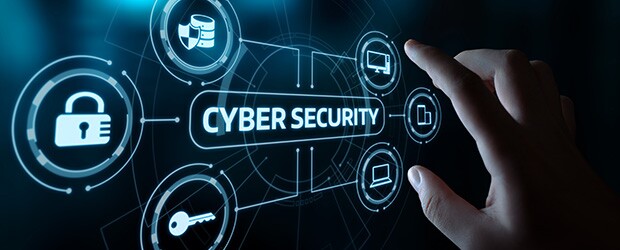Exploring the importance of cybersecurity and Stay safe online
The importance of cybersecurity is not just a matter of technological concern; it is a fundamental aspect of personal safety and privacy.

n today's interconnected world, where we rely heavily on the internet for work, communication, entertainment, and even shopping, cybersecurity has become paramount. The importance of cybersecurity cannot be overstated, as our digital lives are increasingly susceptible to threats from cybercriminals who are constantly evolving and finding new ways to exploit vulnerabilities.
This blog post will delve into the significance of cybersecurity and provide practical tips on how to stay safe online.
The Importance of Cybersecurity
- Protection of Personal Information
One of the primary reasons cybersecurity is crucial is the protection of personal information. We store vast amounts of sensitive data online, including our financial information, Social Security numbers, and personal photos. Cyberattacks can lead to the theft of this data, resulting in identity theft, financial loss, and even emotional distress. Cybersecurity measures act as a safeguard against unauthorized access to our personal information.
- Safeguarding Financial Assets
Online banking and financial transactions have become the norm. While this convenience offers tremendous benefits, it also exposes us to financial risks. Cybercriminals employ various tactics such as phishing, malware, and ransomware to compromise financial accounts. Robust cybersecurity measures help prevent these attacks and protect our hard-earned money.
- Business Continuity
For organizations, cybersecurity is essential to ensure business continuity. A successful cyberattack can disrupt operations, result in data loss, and damage a company's reputation. To mitigate these risks, businesses invest in cybersecurity to protect their assets, maintain customer trust, and comply with legal regulations.
- National Security
Cybersecurity is not limited to individuals and businesses; it's also a matter of national security. Critical infrastructure such as power grids, healthcare systems, and government databases are prime targets for cyberattacks. A breach in these sectors can have devastating consequences for a country. Governments worldwide invest in cybersecurity to protect against both domestic and foreign threats.
- Preserving Privacy
Online privacy is an increasingly hot topic. With the constant collection of personal data by tech companies, protecting your privacy is crucial. Cybersecurity measures can help ensure that your online activities and personal data remain private and are not exploited for marketing or other purposes without your consent.
What are the importance of Cybersecurity and How to Stay Safe Online
Now that we've established the importance of cybersecurity let's explore practical steps you can take to stay safe online:
- Use Strong Passwords:
- Create complex passwords that include a mix of upper and lower case letters, numbers, and special characters.
- Avoid using easily guessable information like birthdays or common phrases.
- Use a unique password for each account, and consider using a reputable password manager to help you keep track of them.
- Enable Two-Factor Authentication (2FA):
- Whenever possible, enable 2FA on your accounts. This adds an extra layer of security by requiring you to enter a code sent to your mobile device or generated by an authentication app.
- Keep Software Updated:
- Regularly update your operating system, web browsers, and all software applications. Updates often include security patches that fix known vulnerabilities.
- Beware of Phishing Attacks:
- Be cautious of unsolicited emails, messages, or links. Cybercriminals often use phishing emails to trick you into revealing personal information or downloading malware.
- Verify the sender's email address and the legitimacy of the website before entering any personal information.
- Use Secure Wi-Fi Connections:
- Avoid using public Wi-Fi networks for sensitive tasks like online banking. If you must use public Wi-Fi, consider using a virtual private network (VPN) to encrypt your connection.
- Install and Update Antivirus Software:
- Install reputable antivirus software and keep it up to date. This software can detect and remove malware from your devices.
- Regularly Back Up Data:
- Regularly back up your important files and data to an external drive or a secure cloud storage service. This ensures you can recover your data in case of a cyberattack or hardware failure.
- Educate Yourself:
- Stay informed about the latest cybersecurity threats and best practices. Being aware of common scams and tactics used by cybercriminals can help you avoid falling victim to them.
- Secure Your Social Media Profiles:
- Adjust your social media privacy settings to limit the amount of personal information that is visible to the public.
- Be cautious about sharing personal information, especially when posting publicly.
- Monitor Your Accounts:
- Regularly review your bank and credit card statements for any unauthorized transactions.
- Set up account alerts to receive notifications of suspicious activity.
Cybersecurity is a critical aspect of our digital lives, and its importance will only continue to grow as technology advances. Protecting your personal information, financial assets, and privacy should be a top priority.
By following the practical tips outlined in this blog post, you can significantly reduce your risk of falling victim to cyberattacks and enjoy a safer online experience. Remember, cybersecurity is a shared responsibility, and we all play a part in keeping the digital world secure.
What's Your Reaction?















